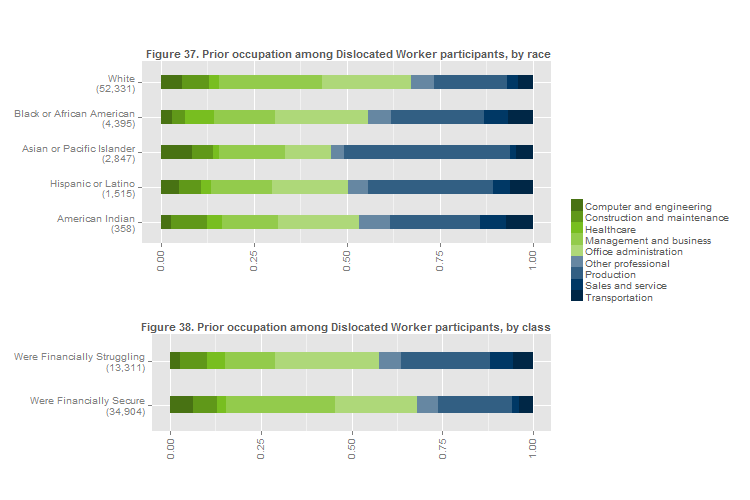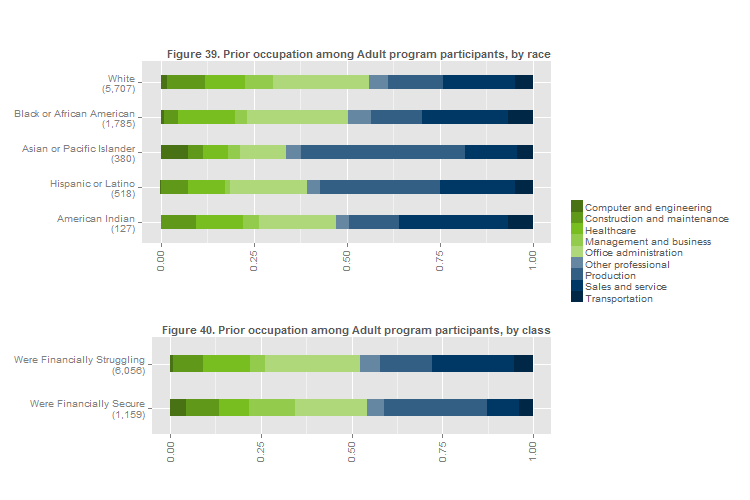Figures 37 through 40 show participants' occupation prior to program participation. Participants in each of these programs are asked to identify the occupation of their previous job. For Dislocated Worker participants, this is the job of their qualifying layoff. The data provided by employers in Wage Detail does not contain information on the employee's occupation, making this type of analysis unique to DEED program participants.

Across racial groups, participants in the Dislocated Worker program are more likely to have worked in the business and financial, computer and engineering, and management fields. Meanwhile, sales and service occupations are much more prevalent among Adult program participants.
Previous occupation varies significantly across race and class. Asian or Pacific Islander participants in both programs are more likely to have worked in a production occupation or in a computer and engineering occupation than other racial groups, and the least likely to have worked in office administration or sales and service. Black or African American participants have a higher prevalence of healthcare occupations than other racial groups, while white participants are more likely than other racial groups to have been in management and business. American Indians have higher rates of construction and maintenance and sales and service occupations relative to other racial groups (See Note 1).
Participants in both programs who were financially struggling prior to participation are more likely to be employed in the healthcare, office administration, and sales and service fields than those who were financially secure, and less likely to be in computer and engineering or management and business occupations.
